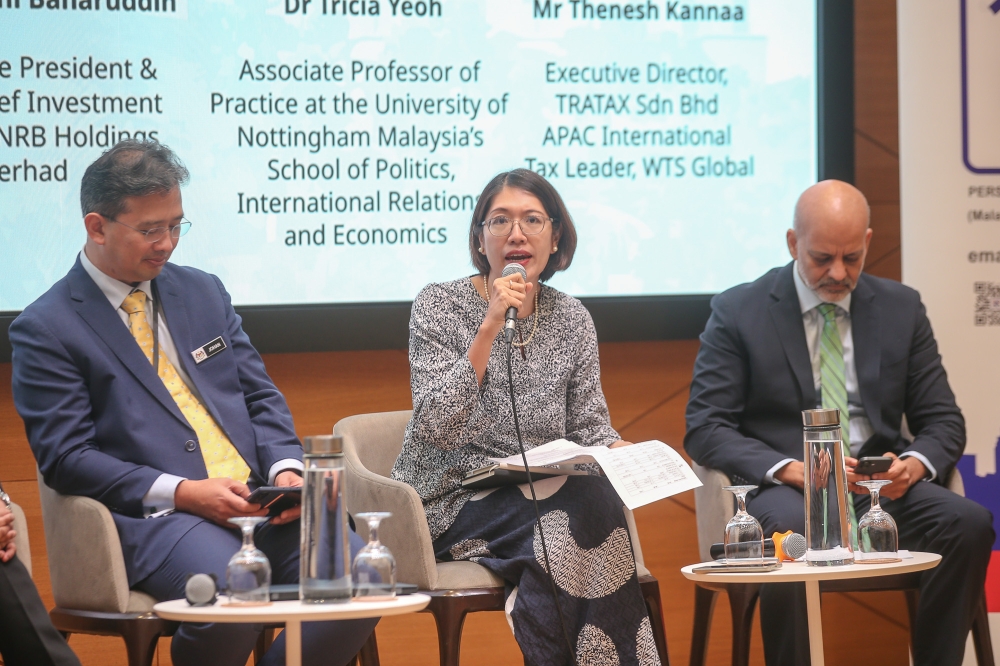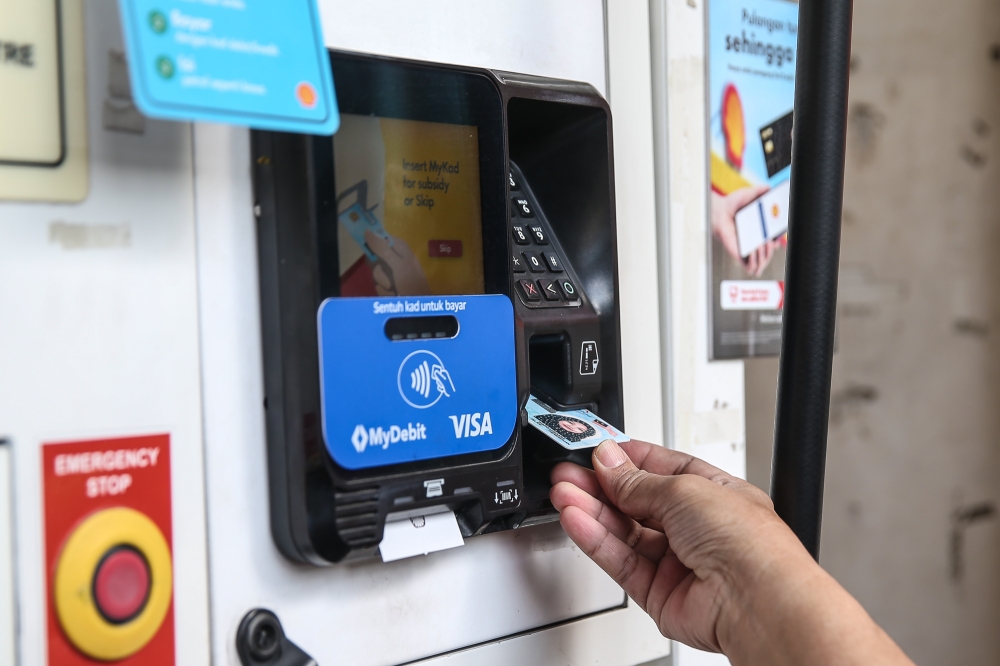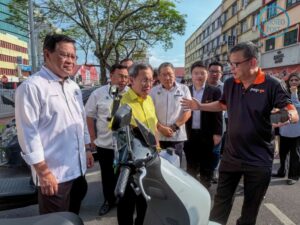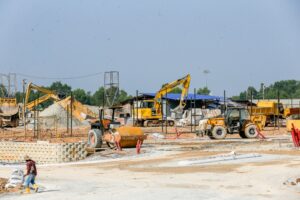KUALA LUMPUR, Oct 13 — The Malaysian government had opted to use the Budi95 programme to plug leakages where Malaysia’s RON95 petrol was being smuggled since it was relatively cheaper, rather than floating the RON95 petrol price and using cash transfers to Malaysians to offset the higher costs.
Treasury secretary-general Datuk Johan Mahmood Merican today explained some of the factors that were taken into account before Budi95 was rolled out, and why the government did not use the other option.
Under Budi95, Malaysians with a valid driving licence get to enjoy a subsidised price of RM1.99 per litre for RON95 petrol, while non-citizens pay the non-subsidised price which is currently at RM2.60 per litre.
Speaking at the Malaysian Economic Association’s post-Budget 2026 dialogue, Johan pointed to a “bad experience” Malaysia had when then prime minister Tun Abdullah Ahmad Badawi’s administration increased fuel prices and gave cash transfers.
“Perhaps the challenge then, and maybe this was where maybe we didn’t manage the psychology very well,” he said.
He noted that while Malaysians were quick to spend the cash transfer as a bonus, they later criticised the government for raising fuel prices and for the resulting inflationary effects.
While the idea of floating petrol prices combined with cash transfers might be seen as the ideal policy, Johan emphasised the challenges posed by long-standing policies already in place.
“But one doesn’t start from an empty slate or a blank page. And like it or not, the government of Malaysia has been subsiding RON95 for a very long time,” he said.
He also pointed out the issues that would arise if the price-floating and cash transfer option were used, as those living closer to their offices would benefit, receiving cash transfers beyond what they need.
However, there would also be individuals who cannot afford to live near their offices — for example, those who live in Seremban but work in Putrajaya — and they would be “worse off” due to higher petrol prices, despite the cash transfers, he said.
He added that the government believed the Budi95 solution would at least help address leakages, similar to how the introduction of targeted subsidies for diesel had helped reduce smuggling.

(L-R): Treasury secretary-general Datuk Johan Mahmood Merican, University of Nottingham Malaysia’s associate professor Tricia Yeoh and World Bank’s lead economist for Malaysia Apurva Sanghi. — Picture by Yusof Mat Isa
“That’s what we see in diesel, there was significant smuggling. It wasn’t just smuggling across the border. There was significant smuggling within the country – people buying diesel from petrol stations and bringing it to factories, their construction site.
“Certainly, no surprise after implementing diesel targeting, we suddenly saw a drop in sales in petrol stations, and corresponding rise in commercial sales from oil companies directly to corporates, and I think that’s another reason we have undertaken that,” he said.
He also acknowledged the World Bank’s lead economist for Malaysia, Apurva Sanghi, for suggesting that the Budi95 programme could have been chosen for its “feel-good” factor for Malaysians at the petrol pump.
“Unlike when money just goes to the bank account that’s supposed to help with the cost of higher fuel, here you are right.
“Part of the intention is to get to see, ‘look, this is the price, the number on the pump is the full value of transactions’. You are paying a smaller amount based on the receipt, I think that’s the choice we have taken, rightly or wrongly,” he said.
Earlier in the same event, Apurva congratulated the government for taking on the “elephant in the room” with its subsidy reform for RON95 petrol, but said Budi95 may not be effective in stopping smuggling.
He said the global experience is that floating prices and offsetting with targeted cash transfers was the best way to cut down on leakages: “That is basically what works in most parts of the world.”
“But of course, for that you need a proper, efficient, functioning system for offsetting cash transfers and maybe it’s not that strong in Malaysia yet,” he said.
Apurva said Malaysia’s diesel subsidy reform largely worked in reducing smuggling because of price floats.






